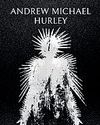
'Want to lose weight? Buy smaller plates." "Mindfulness at work: a superpower to boost productivity." "Leaving Facebook can make you happier." That's what the headlines and Ted Talks would have you believe. But are any of these psychological tricks - or life hacks, as they are often called - actually true?
The truth is, we don't know; and, in a sense, we can't ever know, because of limitations inherent in the design of the relevant experiments - in just about all experiments in what we might call "lifestyle science". That, at least, is the implication of a new study by a pair of Stanford psychologists, Nicholas Coles and Michael Frank. We'll get to their work shortly, but first I'd like to take you to the German city of Mannheim in 1988.
It was here that psychologist Fritz Strack conducted a study that has since become a staple of psychology textbooks. Experiment participants were given a cover story: that previous research using questionnaires had excluded participants who were unable to use their hands to fill in the form, and that this study would explore the feasibility of instead holding the pen in your mouth. Half the participants were asked to hold the pen in their teeth (which forced their mouth into a smile) and half in their lips (which forced their mouth into a neutral pout) while they viewed a selection of cartoon strips. The participants who were smiling when they saw the cartoons rated themselves participants as more amused than the who were pulling a neutral (if slightly odd) expression.
When they were asked afterwards whether they'd suspected anything fishy was going on, no participants showed any sign of realising that the cover story was simply a way to get them to smile. Strack seemed to have shown that at least sometimes - our facial expressions determine our moods, rather than vice versa.
この記事は The Guardian Weekly の June 30, 2023 版に掲載されています。
7 日間の Magzter GOLD 無料トライアルを開始して、何千もの厳選されたプレミアム ストーリー、9,000 以上の雑誌や新聞にアクセスしてください。
すでに購読者です ? サインイン
この記事は The Guardian Weekly の June 30, 2023 版に掲載されています。
7 日間の Magzter GOLD 無料トライアルを開始して、何千もの厳選されたプレミアム ストーリー、9,000 以上の雑誌や新聞にアクセスしてください。
すでに購読者です? サインイン

We're making a music video-but I can't play, or even act
I am in a lifeboat station on the south coast, standing beneath the stern of a rescue vessel, wearing a borrowed fisherman's jumper and holding a banjo. There are lights on me, and I am very much at sea.

BOOKS OF THE MONTH
The best translated fiction

Village people A chilly tone of doom infects these unsettling folk tales, following a settlement from the deep past to near future
The quintessential \"bad place\" is one of the staples of horror fiction. For Stephen King, the bad place - think the Overlook Hotel in The Shining - usually acts as a repository for a long-forgotten evil or injustice to resurface.

A labour of love Haruki Murakami revisits a hypnotic city of dreams and a tale of teen sweethearts, in material he's worked on over four decades
The elegiac quality of Haruki Murakami's new novel, his first in six years, was perhaps inevitable considering its origins. The City and Its Uncertain Walls began as an attempt to rework a 1980 story of the same title, originally published in the Japanese magazine Bungakukai, which Murakami, unsatisfied, never allowed to be republished or translated.

Leading questions The former German chancellor slights her enemies by barely mentioning them-and is frustratingly opaque on her own big calls
Towards the end of her 16-year tenure, former German chancellor Angela Merkel was garlanded with superlative titles: the \"queen of Europe\", the \"most powerful woman in the world\".

Double vision
Is the pay really that good? Do you get bored? We ask 'David Brent', 'Nessa' and 'Ali G' what it's like to make money as the lookalike of a comic creation

Robopop Teen star who does not exist
Miku is a 'Vocaloid' -a holographic avatar that represents a digital bank of vocal samples-performing sellout tours for thousands of very real mega-fans

The show must go wrong
How did a farce about a gaffe-filled amateur dramatic whodunnit become one of Britain's greatest ever exports, the toast of dozens of countries?

Europe's latest radical populist typifies a swing on the continent
Politics in Romania can be a bloody business, especially on the right. The excesses of the Iron Guard, an insurrectionary, violently antisemitic, ultranationalist 1930s political-religious militia, stood out even at a time when fascist parties were wreaking havoc in Germany, Italy and Spain. Given what is happening in Europe today, the events of that period are instructive.

It's high time to tax cannabis and fix French finances
France might not be broke, but the state of its public finances is, well, definitely not good. Total debt stands at €3.2tn ($3.4tn) - 112% of GDP. Interest payments on that debt are the second largest public expenditure after education (which includes everything from crêche, or preschool, to universities) and are higher than the amount spent on defence. And this year's budget deficit is projected to be 6%, three points above the EU's 3% limit.